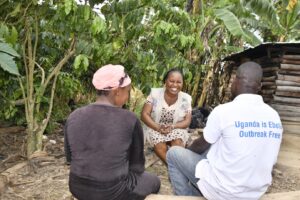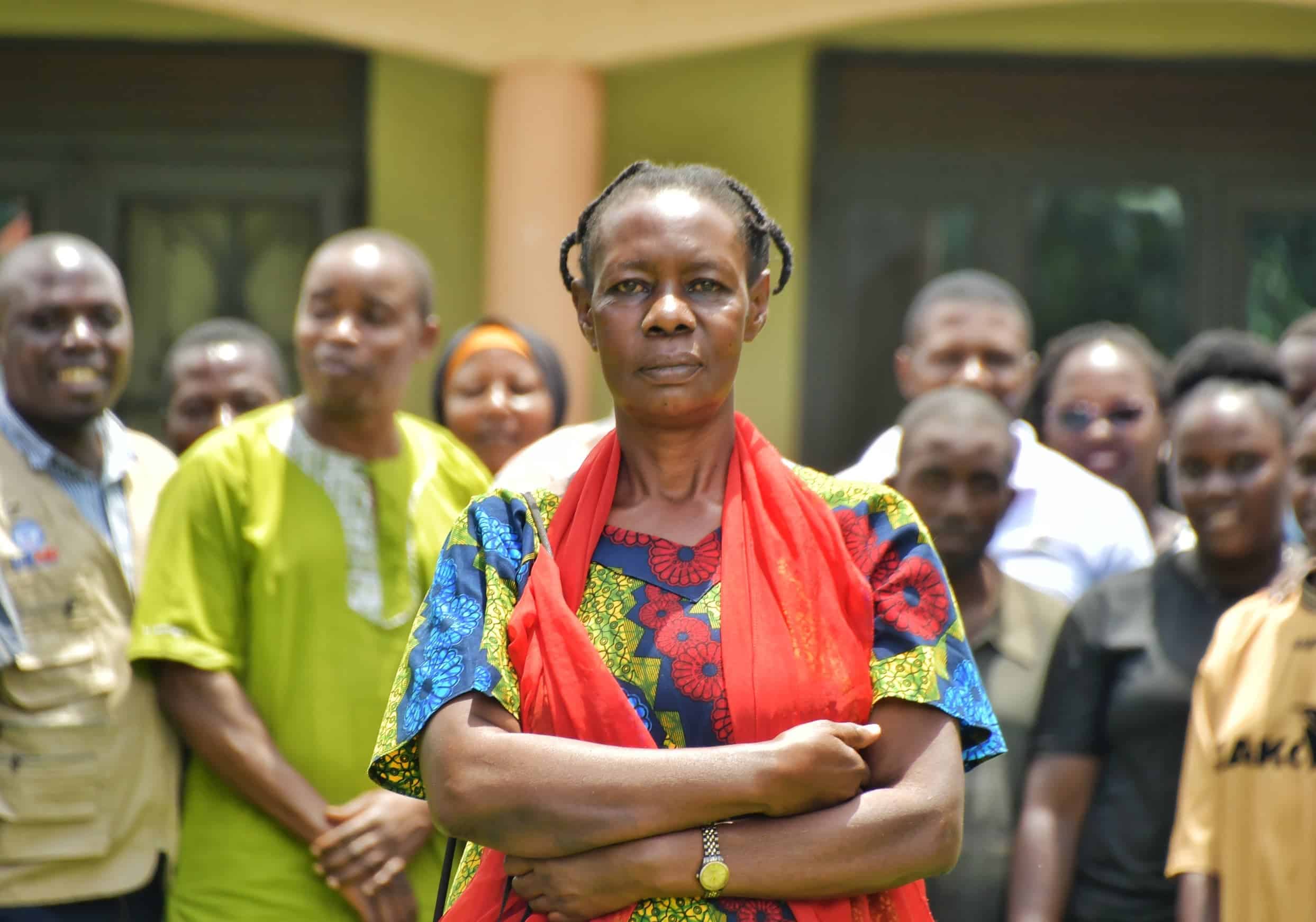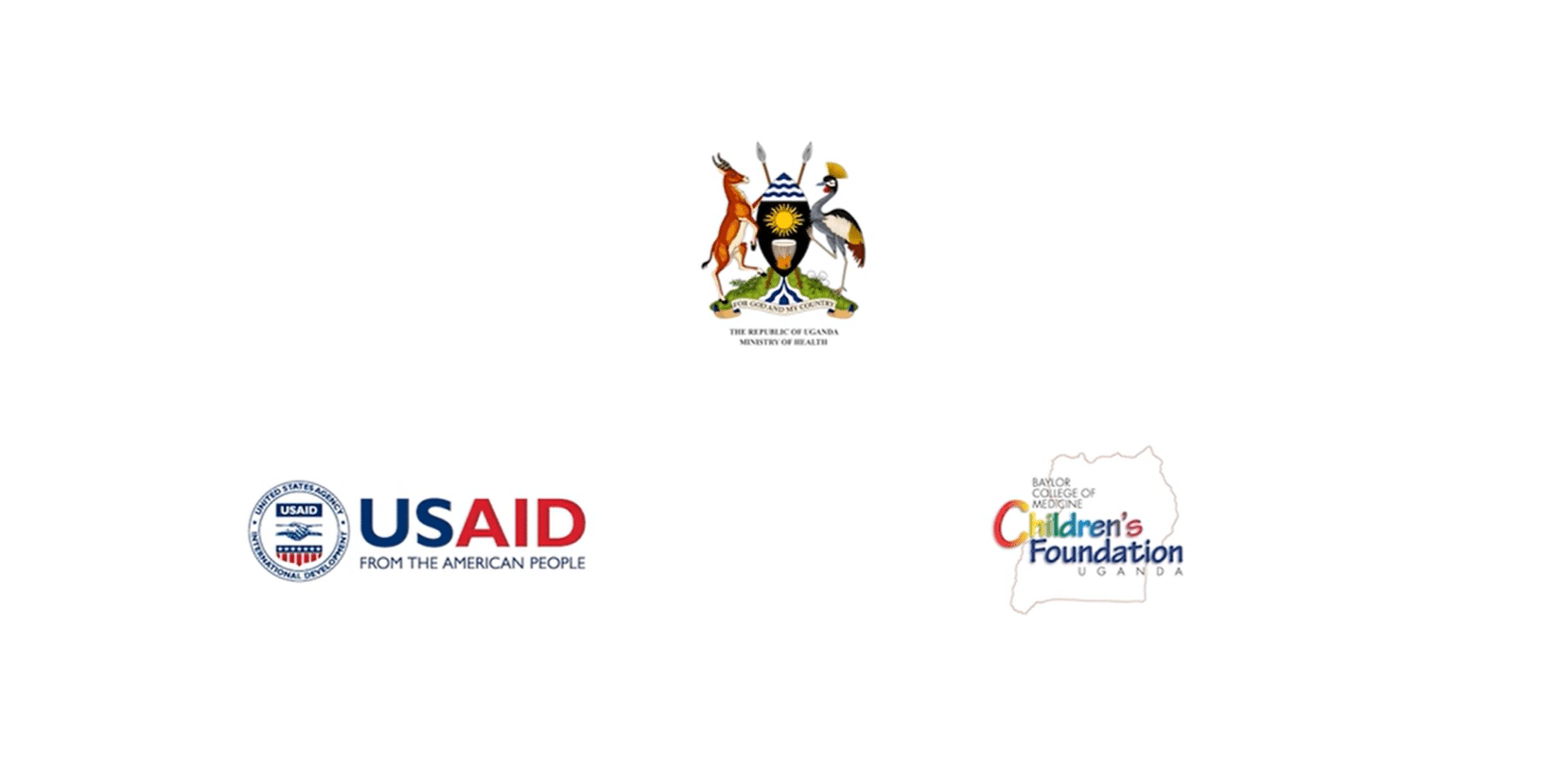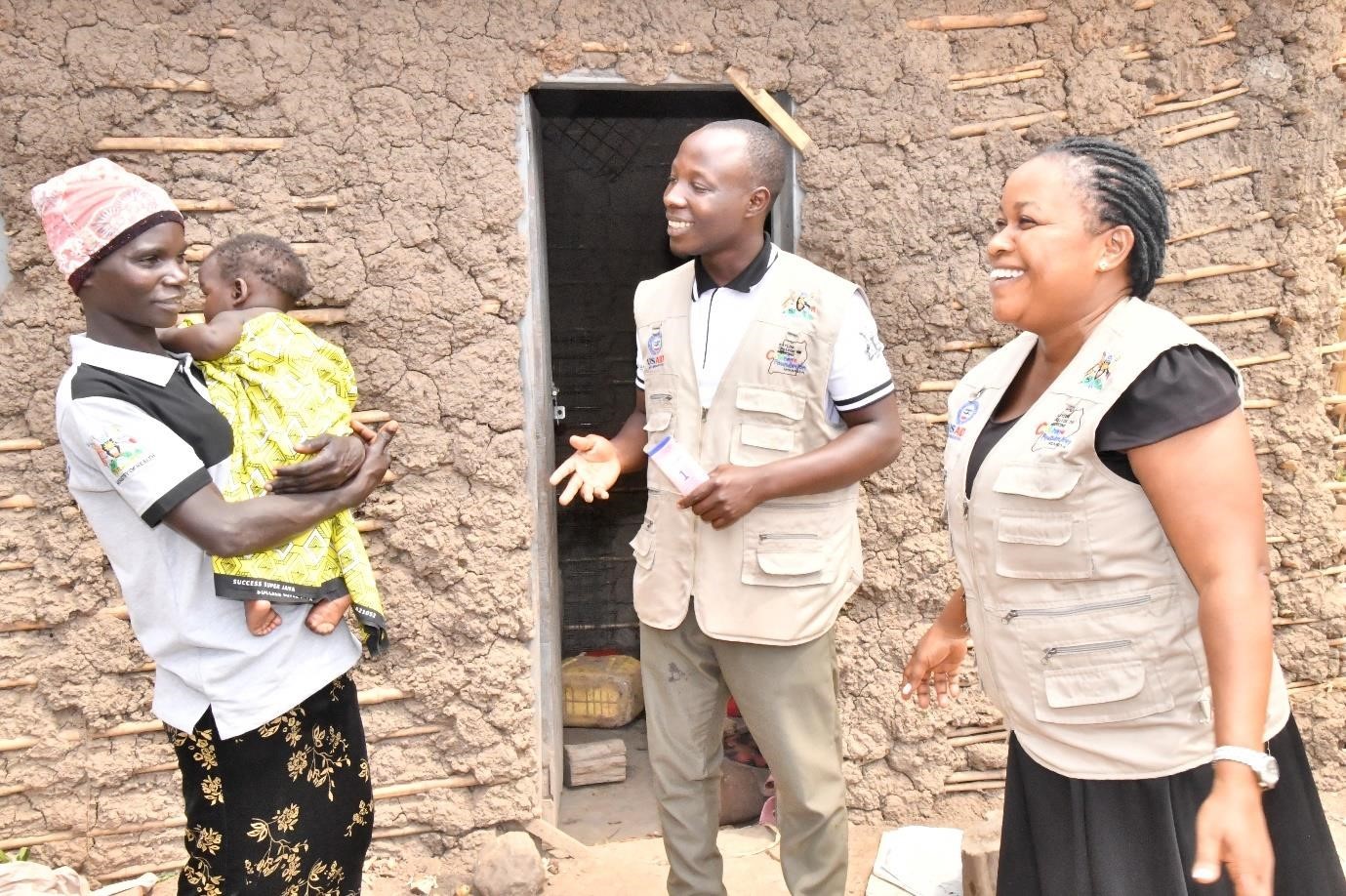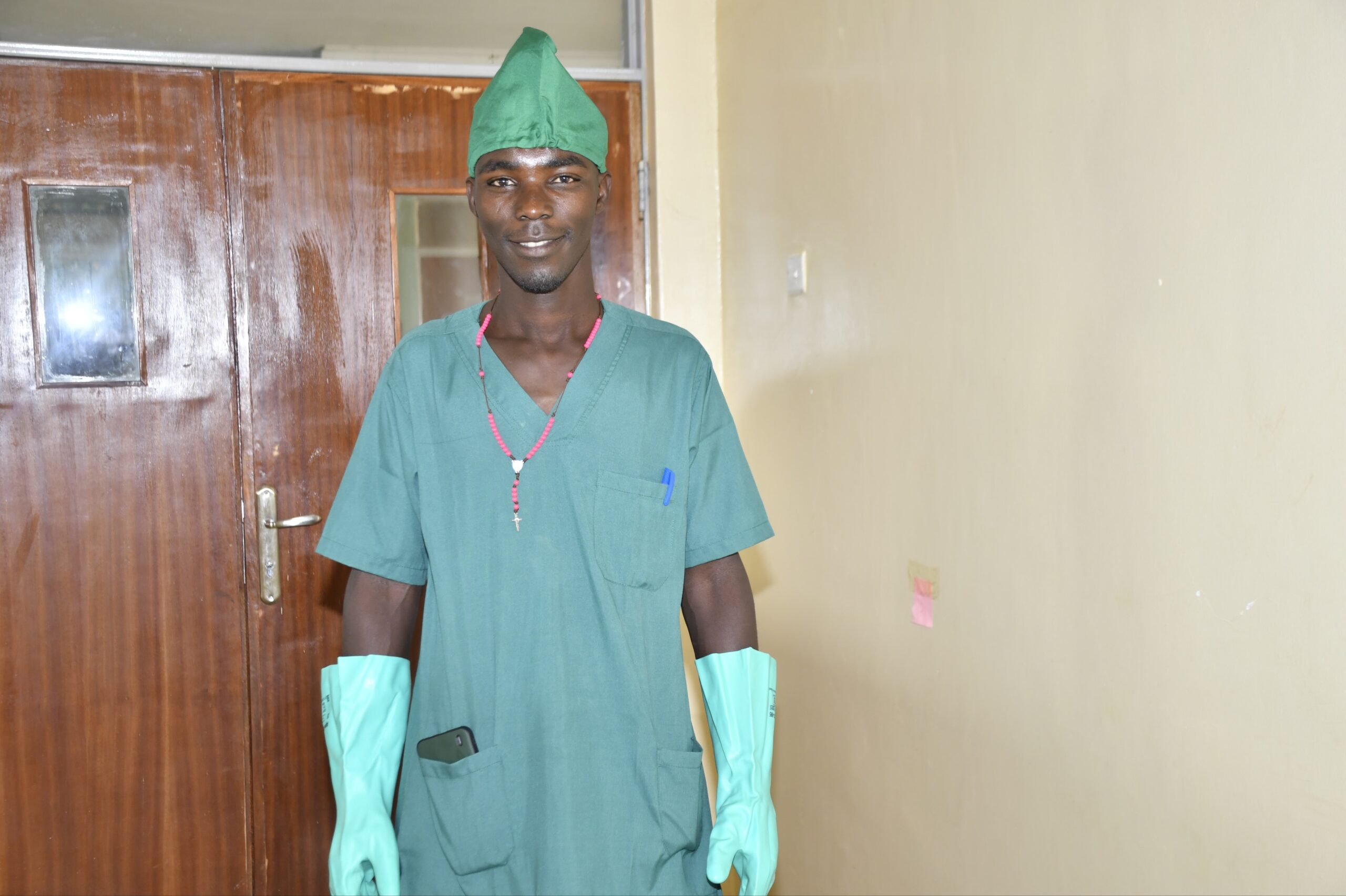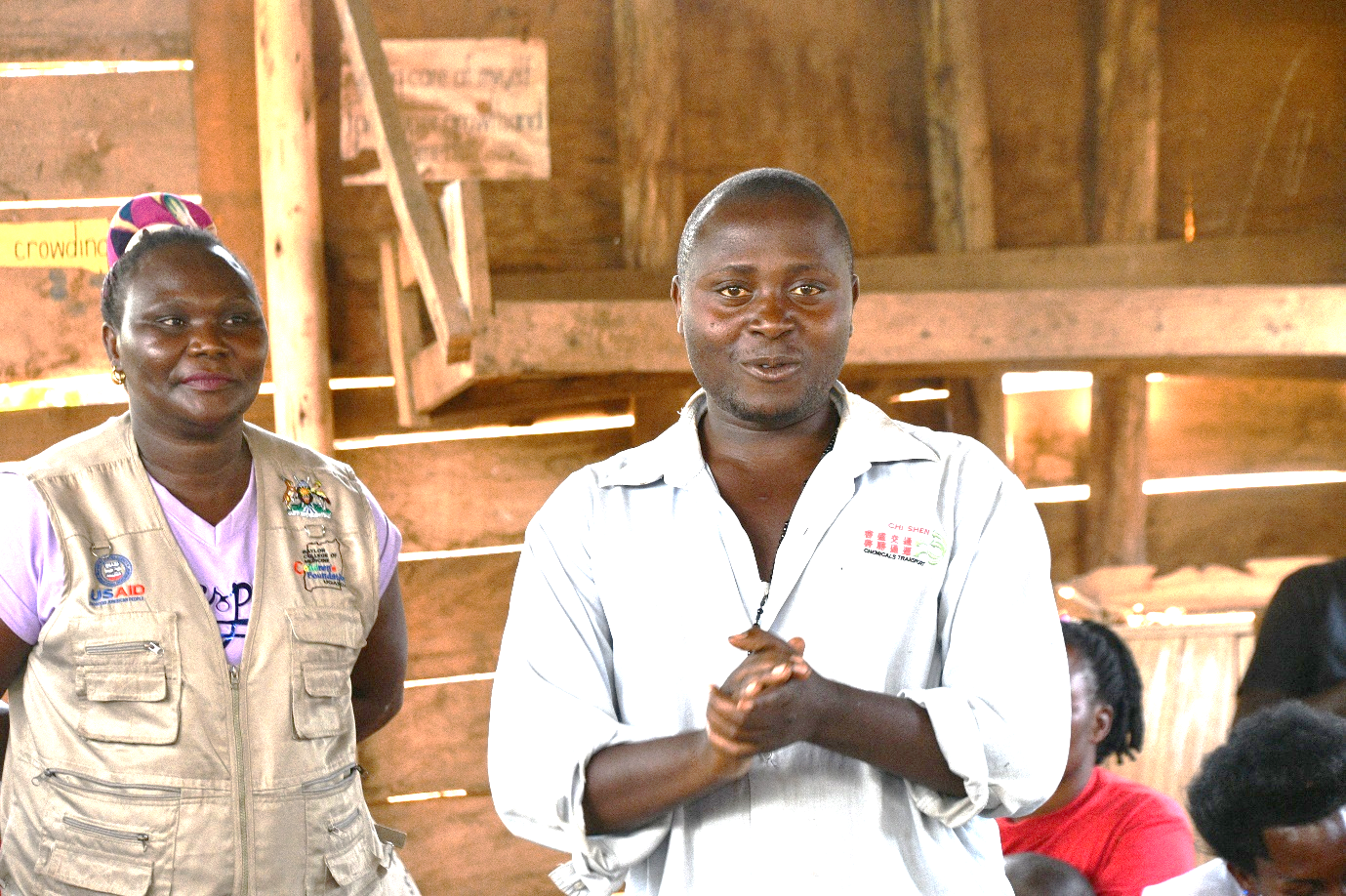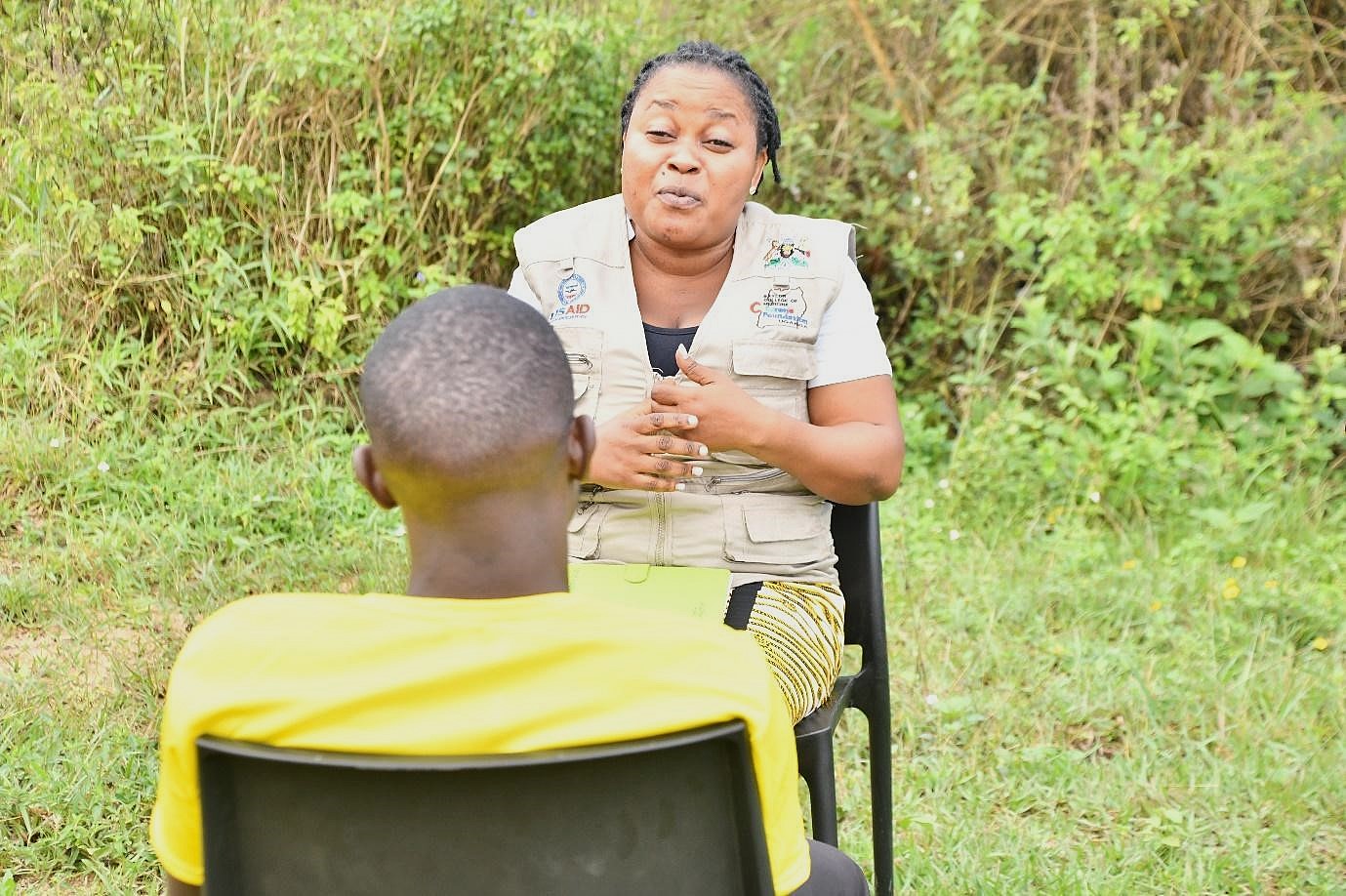Faith Kakai, a MHPSS counselor with Azam and his wife during a home couple counseling session.
Relationships with our families, friends and acquaintances serve as a constant reminder that we are not alone and give us the courage to take on challenges. Azam (not his real name) experienced this when he lost a friend to Ebola, became ill, and was ejected from a clinic from where he sought treatment. He proceeded to Kikandwa HC III as a result, where Dr. Kizito called for an ambulance to take him to Mubende Regional Referral Hospital (RRH). According to Dr. Kizito, most of the survivors were hesitant to get into the ambulance because they believed that the Ebola outbreak was a hoax. “I was worried about the common belief that the hospital was harvesting body parts, but Dr. Kizito, soothed my concerns and I accepted to be taken to the hospital,” says Azam.
In the Ebola Treatment Unit (ETU), Azam witnessed two of his village mates die, intensifying his fear and concern. “I and a fellow survivor literally cried over leaving our children behind, causing us more distress,” says Azam. It was about this time of crisis that the mental health and psychosocial counselors from the National Ebola Survivors’ Program started visiting Azam and speaking to him across the double fence around the ETU. The program was established by the Ministry of Health in collaboration with Baylor-Uganda and with financial assistance from the United States Government to support the recovery of Ebola survivors by responding to their needs and minimizing distress and trauma.
The counselors linked Azam who was still in the ETU with his family, enabling him to talk to his wife and children on the phone. While they updated the family about Azam’s situation allaying their fears and anxiety, they also helped Azam deal with separation anxiety and hopelessness to live.
“Talking to my family on phone when I was in the ETU took away my fear. It made me realize that I was not alone in facing this challenge. As a result, I started drinking and accepting treatment with the hope of seeing them again,” says Azam. Eventually Azam was discharged. When he arrived home, he was happy to find that the maize in the garden still intact. His wife had tended the garden, and he was able to harvest 50 bags. “This income enabled us to go through the lockdown period,” adds Azam.
Azam’s arrival had a drawn back in his community as explained by Azam. “They started running away from me. No one visited my home, and those who were close to me would greet me but keep their distance.” Thanks to the program, this situation was short-lived as health workers sensitized the communities about Ebola and reemphasized that survivors no longer had Ebola.
Azam is appreciative of the healthcare professionals who helped him to overcome his anxiety during the height of the stigmatization and discrimination from his community. They picked us up, when no one wanted to be associated with us, and took us for medical examinations in Mubende. They continue to care for and counsel me and my wife, even as I battle various medical challenges that I only acquired after recovering from Ebola.
